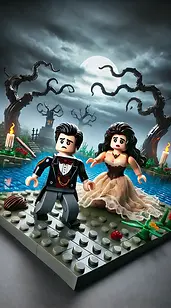
Empowering Human Creativity with AI Precision
Our Workforce Innovation Services are designed to reduce administrative burden, increase cross-departmental collaboration, and accelerate service delivery. Whether you're facing staffing shortages, navigating new compliance mandates, or striving to modernize operations, we provide practical, hands-on training and tools that empower your team to do more—with less.
Create your Personal AI Assistant for ANY GenAI Platform

THE CRAFT-IT™ FRAMEWORK
C - Context
R - Role
A - Attributes
F - Format
T - Tone
Tell the GPT What You Want it to Do
I - Illustration (Examples)
T - Task
I tripled my productivity using The CRAFT-IT™ Prompt Framework
At Strategic Leadership Development, we blend the best of human-centered design and artificial intelligence to unlock creativity and accelerate innovation.
Our unique CRAFT-IT™ Prompt Framework transforms how individuals and teams interact with generative AI tools like ChatGPT, Claude and Co-Pilot.
_JPG.jpg)
With CRAFT-IT™, you don’t just “use” AI—you collaborate with it. The result? Faster workflows, smarter outputs, and more time for the work that really matters: leading, innovating, and serving.
CRAFT-IT™ is a structured prompt-design methodology that helps you co-create with AI—intentionally and strategically. Developed by experts certified in Creative Problem Solving (CPS), FourSight, and Design Thinking.
This framework empowers teams to:
-
Co-create with AI more intentionally and effectively
-
Automate routine communication and documentation
-
Boost clarity, creativity, and cross-functional alignment
-
Leverage AI to solve real problems—not just surface-level tasks
The CRAFT-IT method saved my team weeks on our curriculum development project", Dean College of Fine Arts & Communication


My husband use the prompt hacks you showed him all the time. It's actually getting a annoying, he's constantly talking about what he did using AI at work!" HR Director, Florida State College & University System.
SLD360 AI+
DALL-E Images Examples using the CRAFT-IT Method

















